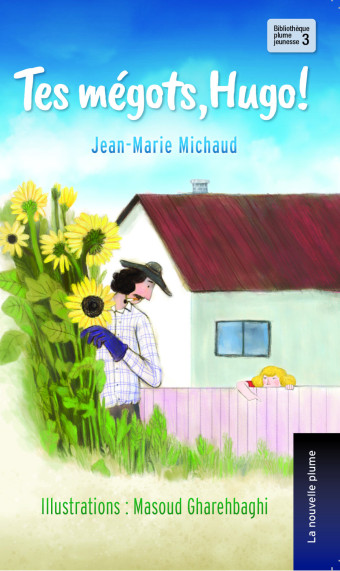In Junk City, there are no solitary knights. Nobody wins and nobody loses. If the producers go bankrupt, the consumers leave. And the city dies.
Junk City, David Baudemont’s sixth young adult novel, is the result of a collaboration between the author and 16 Grade 5 students of École Canadienne-Française in Saskatoon. In the course of 10 workshops, they developed the ideas and the characters used by the author to write the book.

- Junk City
- David Beaudemont
- Les Éditions de la nouvelle plume
- $14,95 papier, 190 pages
- ISBN: 978-2-924237-63-2
“One of the objectives of the workshops is to make them enjoy literature,” says the former geologist. “But it is also an introduction to the process of creative writing. It is something that is more foreign to this generation because they are used to getting these things from the Internet and less perhaps from writing them themselves.”
Students write short summaries of stories inspired by a painting. They then vote on the story that pleases them the most. Once they’ve decided on the subject, there is a complete adherence from the whole group for that subject that concerns them in their actual lives.
For Junk City, the class chose a summary – written by a student of Moroccan origin – based on a folk art painting of Maude Lewis.
Baudemont says, “The youngster imagined the story of a boy who spends a lot of time playing video games. His father, who is a fisherman, thinks that this is a waste of time. One day, they leave by boat and are surprised by a storm. Thanks to his computer and his connections with video games, they manage to find help and return safely.”
The students had to create a few video games of their own for the book, including Junk City, a game with the garbage cans of a big city.

“We find in this young generation a very pronounced concern for the environment and the problems associated with waste,” says Baudemont. “It came back as one of the major concerns: what will we do to continue to live on this planet with the major environmental problems and waste.”
That a solitary pursuit associated with video games has in fact an element of community came as a revelation. “Let’s say that it opens our eyes, those of us who are in our 50s and 60s, when faced with something that we don’t understand very much and is off-putting,” he says.
“The community dimension is absolutely essential to this phenomenon of video games. This is an almost universal dimension that we cannot deny, and there is an impression, false or otherwise, of power that comes from all of this.”











